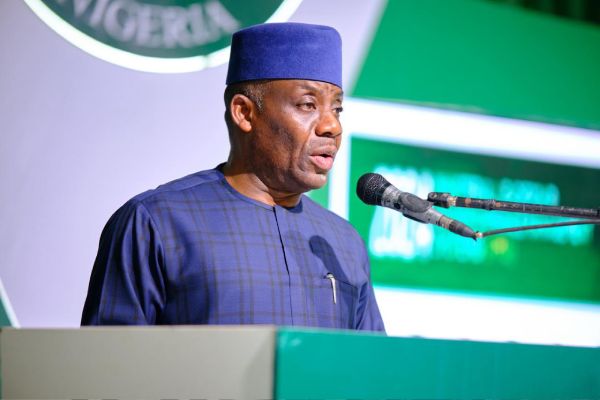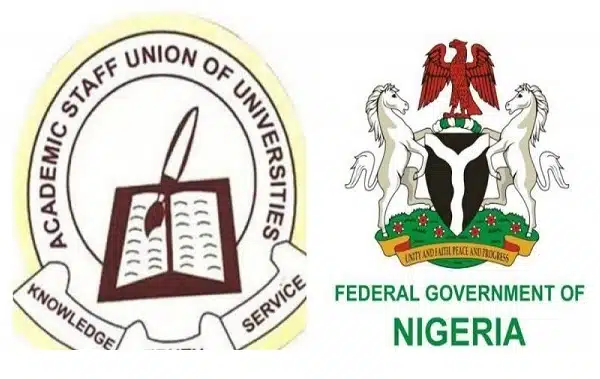In a significant move aimed at maintaining stability in Nigeria’s higher education sector, the Federal Government has taken proactive measures to avert another potential strike by the Academic Staff Union of Universities (ASUU). The decision comes amid growing concerns over the possibility of renewed industrial action that could once again disrupt academic activities across public universities.
This development signals the government’s renewed commitment to ensuring uninterrupted academic calendars, particularly as the education sector continues to recover from years of disruption caused by frequent strikes, funding challenges, and unresolved negotiations between lecturers and the government.
Background: A History of Recurring Strikes
For decades, Nigeria’s public university system has been plagued by recurring strikes—often resulting from disputes between ASUU and the Federal Government over unmet demands. These strikes have had a devastating impact on academic calendars, research productivity, and the overall morale of students and lecturers.
ASUU’s demands have typically centered around the payment of earned academic allowances, revitalization of university infrastructure, fair remuneration, and autonomy in the university system. Despite numerous agreements signed in the past, implementation has often been delayed, leading to mistrust between both parties.
In recent months, ASUU had issued a six-day warning strike over concerns that the government had failed to fully address pending issues. The warning strike served as a signal that another prolonged shutdown of the education system could be imminent if urgent interventions were not made.
Government’s Intervention: Dialogue Over Disruption
To prevent further disruption to the academic calendar, the Federal Government—through the Minister of Education, Dr. Tunji Alausa—has announced that several of ASUU’s demands have been “virtually met.” The Minister emphasized that the administration of President Bola Ahmed Tinubu is determined to maintain peace and progress within Nigeria’s tertiary education sector.
According to Alausa, the government has already implemented key measures aimed at resolving the long-standing issues that led to past strikes. These include:
- Payment of Arrears and Earned Academic Allowances: The government has reportedly begun clearing outstanding arrears owed to lecturers across various public universities. This move is expected to ease long-standing tensions between lecturers and the Ministry of Education.
- Launch of a Federal Transparency Dashboard: A new system has been introduced to enhance accountability in tertiary institutions. This dashboard is designed to monitor financial disbursements, performance indices, and institutional compliance with federal funding policies.
- Consolidation of Negotiation Panels: Instead of multiple, overlapping committees, the government has now established a single negotiation team led by former Head of Service, Yayale Ahmed. This unified approach will coordinate discussions with university, polytechnic, and college of education unions—both academic and non-academic—ensuring that resolutions are streamlined and effectively implemented.
- Stakeholder Engagement and Conflict Prevention: The government has strengthened communication channels with university unions, aiming to replace confrontation with constructive dialogue. This is expected to foster trust and prevent misunderstandings that often escalate into strikes.
No Imminent Strike: Minister Clarifies Labour Position
The Minister of Education also dismissed claims that the Nigeria Labour Congress (NLC) or other affiliated unions had issued an ultimatum regarding the current situation. He assured the public that the government remains in open dialogue with all education stakeholders to prevent industrial actions that would once again disrupt students’ studies and academic progression.
Alausa reiterated the government’s readiness to continue engaging with ASUU leadership to resolve all outstanding issues amicably. He noted that the administration fully recognizes the vital role of lecturers in shaping Nigeria’s intellectual and technological future.
Implications for Students and Universities Nationwide
The government’s latest actions carry significant implications for both students and staff across Nigeria’s public tertiary institutions.
- Uninterrupted Academic Calendar: If the ongoing talks succeed, Nigerian universities could enjoy a rare period of academic stability—allowing students to complete their programs without delay.
- Improved Funding Transparency: The newly launched transparency dashboard may revolutionize how university funds are tracked and disbursed. This could reduce cases of mismanagement and ensure that funds for research, teaching, and infrastructure reach their intended destinations.
- Enhanced Lecturers’ Welfare: With arrears and earned allowances being addressed, lecturers may experience an improved sense of job satisfaction, leading to better motivation and productivity in teaching and research.
- Positive Impact on Final-Year Projects: For students currently working on research or final-year projects, consistent academic operations will allow for uninterrupted access to laboratories, supervisors, and necessary academic resources.
- Long-Term Policy Stability: The consolidation of negotiation teams could mark the beginning of a more organized system of conflict resolution between the government and tertiary institutions.
Challenges Ahead: Will Promises Translate into Action?
While the Federal Government’s assurances are commendable, skepticism remains among many stakeholders. Past experiences have shown that government promises do not always translate into swift or full implementation.
Some observers argue that although the government has claimed to have “literally met” most of ASUU’s demands, the details of these implementations remain vague. Questions persist regarding the exact timeline for payment of outstanding allowances, the effectiveness of the new transparency system, and the long-term sustainability of the reforms.
Furthermore, there is concern that the root causes of ASUU’s grievances—such as inadequate funding of universities, outdated infrastructure, and lack of research grants—have not been comprehensively addressed. Without tackling these structural challenges, future disagreements could still emerge.
Reactions from the Academic Community
Some lecturers and education experts have welcomed the government’s efforts, describing them as a positive step toward stability. However, others remain cautious, insisting that genuine progress will only be evident when promises are backed by visible results.
Students, on their part, have expressed relief at the possibility of avoiding another prolonged strike. Many have endured multiple academic disruptions over the years, leading to delays in graduation and emotional distress.
Expert Analysis: What Needs to Be Done Next
Experts in the education sector recommend that the government adopt a long-term framework for university funding that is less susceptible to political changes. They argue that predictable and adequate funding—backed by accountability—will reduce the likelihood of future crises.
Additionally, ASUU has been urged to maintain dialogue and explore new ways of engaging the government without resorting to strikes. Both parties are encouraged to prioritize the interest of students and the future of Nigeria’s education system.
Table: Key Issues and Federal Government’s Response
| ASUU Demand | Government’s Response | Status/Remarks |
|---|---|---|
| Payment of Earned Academic Allowances | Payment process initiated | Awaiting full implementation |
| Revitalization of Universities | Funding commitments renewed | Monitoring through dashboard |
| University Autonomy | Discussions ongoing | To be handled by negotiation team |
| Consolidated Negotiation Framework | Yayale Ahmed-led team formed | Active coordination in progress |
| Salary and Welfare Review | Government claims compliance | Verification ongoing |



